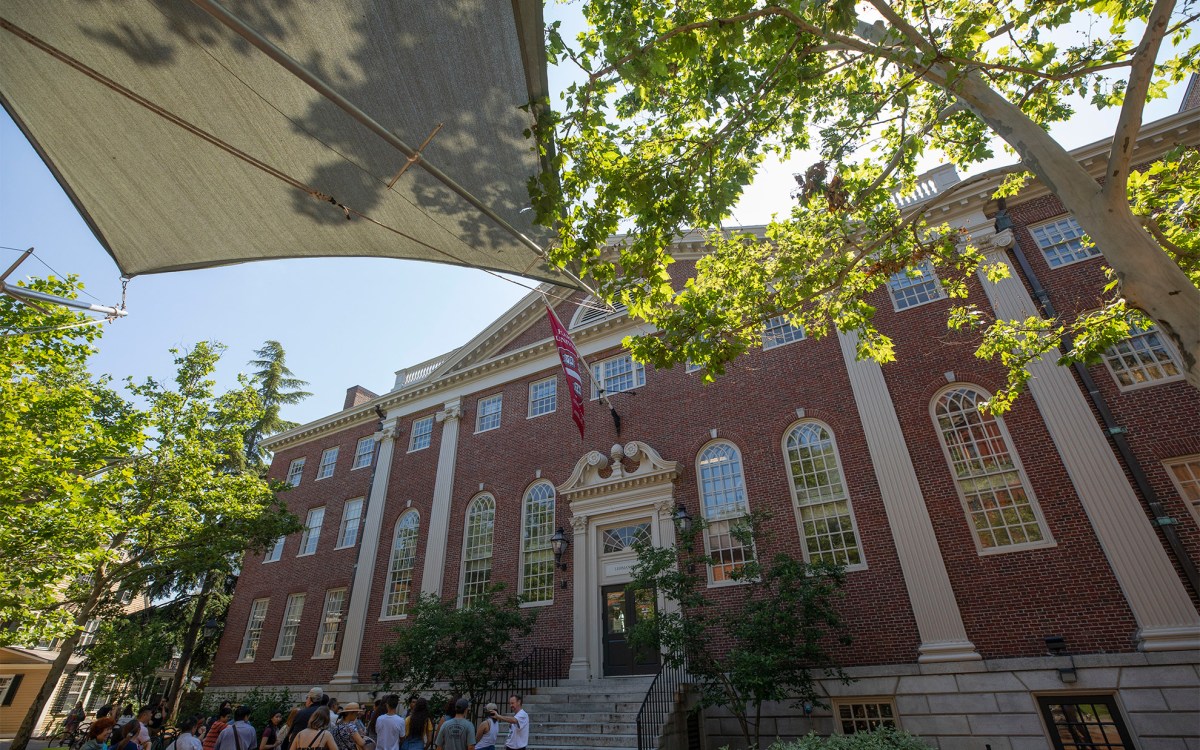Harvard wins Cambridge Go Green Award for Blackstone project
Harvard University has been awarded a city of Cambridge Go Green Business Award, which recognizes business and institutional leaders for their efforts to create a more sustainable city.
The award, in the energy category for a large organization, was given to University Operations Services (UOS) for the 46 Blackstone St. project, a 44,000-square-foot project that converted former industrial space — and a brownfield site — into office space.
The project, completed in May 2006, has received a platinum certification — the highest possible and the first at Harvard — from the U.S. Green Building Council’s Leadership in Energy and Environmental Design (LEED) rating system.
Its green features include ground-source heat pumps for cooling the building; features that reduce summer energy use 42 percent below code; and features that reduce water use by 43 percent. It includes conversion of a former parking lot to green space, use of environmentally responsible materials, drought-tolerant plants, and metering equipment to monitor the building’s energy efficiency. Recycling and reuse of construction debris from the renovation resulted in more than 99 percent of construction waste diverted from landfills.
Thomas Vautin, UOS associate vice president for facilities and environmental services, said the Blackstone project is a valuable example that shows what’s possible when sustainability is incorporated into project design.
“The Blackstone office renovation project has been a truly valuable learning experience for us,” Vautin said. “It illustrates that it is possible to perform major renovations of an historic structure to create high performance and a wonderful work environment — all in a very cost-effective way.”
The award, to be given at today’s (May 17) ceremony at the City Hall annex, is the second in three years for Harvard. Harvard’s Green Campus Initiative won a Go Green Business Award in 2004 for its efforts to spur energy conservation, energy-efficient purchasing, and green-power purchasing on campus.




